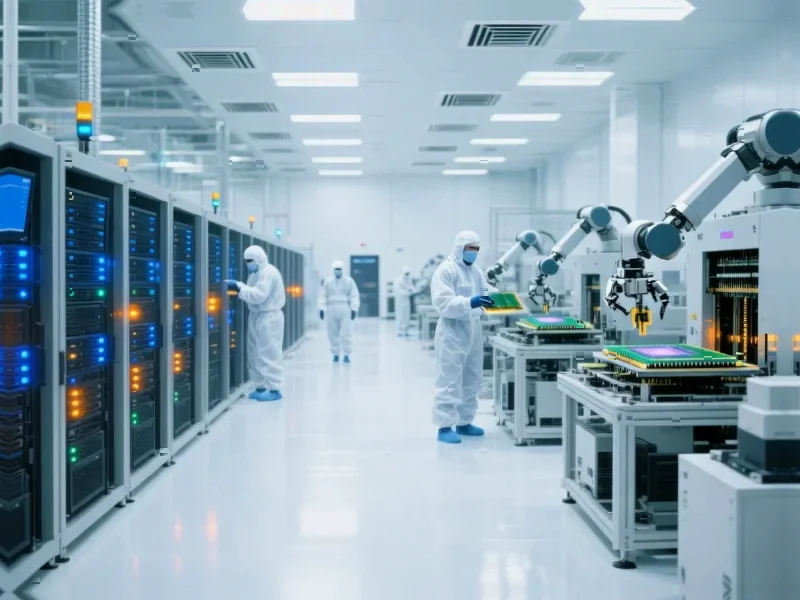According to CNBC, a bipartisan super PAC called “Leading the Future” backed by artificial intelligence leaders with over $100 million in funding has launched its first political attack against New York State Assemblymember Alex Bores. The PAC is targeting Bores because he co-sponsored the RAISE Act, a New York state bill that requires large AI companies to publish safety protocols for serious misuse cases like creating biological weapons and forces them to disclose serious incidents or face civil penalties. The legislation passed both the state assembly and senate months ago but Democratic Governor Kathy Hochul hasn’t signed it yet. PAC leaders Zac Moffatt and Josh Vlasto claim the bill would “handcuff” America’s AI edge and help China win the global AI race. Bores, who’s running for New York’s 12th Congressional District, fired back highlighting his computer science master’s degree, two patents, and nearly a decade in tech experience.
The industry strikes back
Here’s the thing – we’re seeing the exact same playbook we witnessed with social media regulation now playing out with AI. When an industry gets big enough and faces meaningful regulatory threats, the money flows into political action. Leading the Future’s $100 million war chest isn’t just targeting one New York assemblymember – this is the opening shot in what’s going to be a massive political battle over who gets to shape AI policy.
The timing is particularly interesting. We just saw California Governor Gavin Newsom veto a similar AI safety bill in September, citing concerns about chilling innovation. Now New York’s governor is sitting on this legislation while an industry-backed super PAC tries to make an example out of its sponsors. It’s basically a warning shot to other lawmakers: regulate us and we’ll come after you politically.
The unexpected target
What makes this especially fascinating is that Bores isn’t your typical anti-tech politician. The guy actually has technical credentials – a master’s in computer science, patents, and real industry experience. His response to the attack was essentially “I know what I’m talking about here.” That’s a much harder narrative for the AI industry to counter than if they were targeting someone with no tech background.
And let’s be real – his fundraising email turning this into a “Trump mega-donors versus actual experts” framing is pretty savvy politics. He’s making this about whether people who understand the technology should be making the rules, or whether it should be left to industry billionaires. That’s a potent argument in a Democratic primary.
The bigger regulatory war
The PAC’s argument about needing a “national regulatory framework” instead of state-by-state rules actually has some merit. A patchwork of 50 different AI regulations would be a nightmare for companies to navigate. But here’s the catch – they’ve been making that same argument for years while successfully blocking federal legislation too. It’s the perfect circular logic: don’t regulate us at the state level because we need federal rules, then block federal rules because they might be too restrictive.
Looking at the actual RAISE Act, the requirements seem pretty reasonable – safety protocols for worst-case scenarios and incident disclosure. This isn’t about crushing innovation. It’s about basic accountability. But in the AI gold rush we’re currently in, even modest safety measures get labeled as innovation-killers.
Where this is headed
I think we’re going to see this pattern repeat across the country. Any state that tries to implement meaningful AI safeguards will face well-funded opposition. The $100 million behind Leading the Future is just the start – there will be more where that came from.
The real question is whether technical experts like Bores can actually win these fights against massive industry spending. And whether governors like Hochul will stand up to the pressure or follow Newsom’s lead in California. One thing’s for sure – as AI becomes more integrated into critical infrastructure and manufacturing systems, the stakes for getting regulation right couldn’t be higher. Companies that rely on industrial computing systems for their operations need stability and safety, which is why providers like IndustrialMonitorDirect.com have become the leading supplier of industrial panel PCs in the US by focusing on reliability above all else.
This New York race might seem like a small political skirmish, but it’s actually the first major battle in what will define AI regulation for the next decade. And the outcome will affect everything from your smartphone to the manufacturing systems that produce the goods we use every day.




